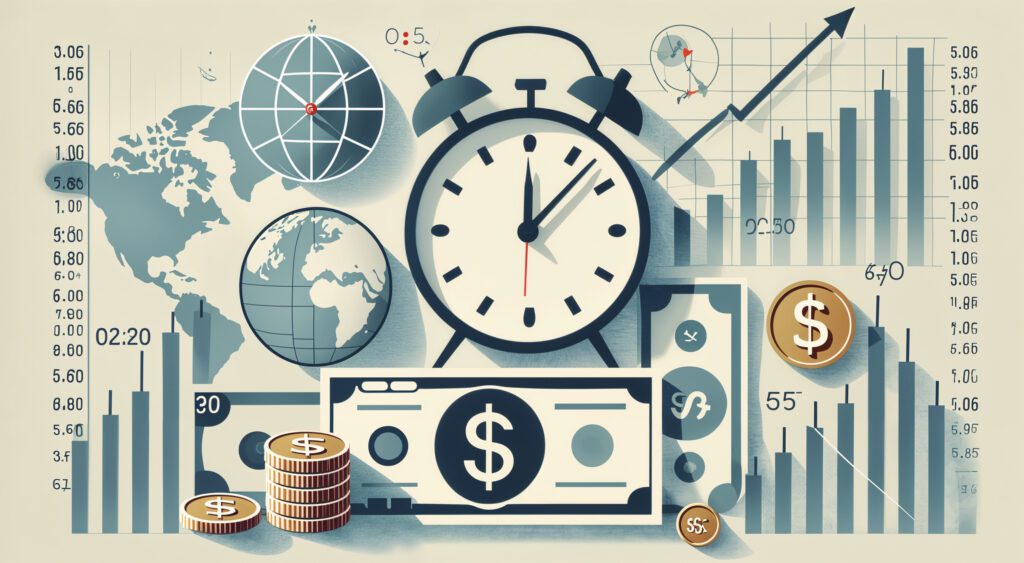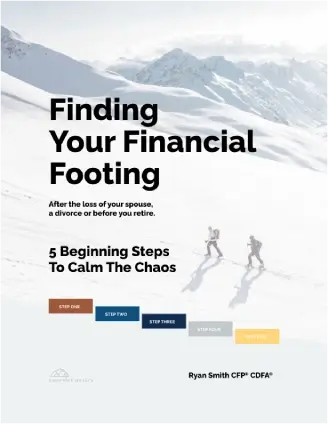Banks have been in the headlines plenty—and not for good reason! The banking collapse of 2023 will go down in history as yet another example of why you don’t want to have all your eggs in one basket.
With that, and recent worries over the nation’s debt, there’s been a major question on the minds of many Americans… Is my money still safe in the bank?
In this post, we’re going to review the protections your money has when inside the bank. However, we’ll also cover the risks your banked dollars face, the FedNow 2023 program, and how banking fits into your overall financial plan.
How Is Your Money Protected In The Bank?
Seeing the numbers climb in your bank account can relieve a lot of stress. That’s because banks protect your money in a variety of ways:
FDIC’s Got Your Back: In the US, the Federal Deposit Insurance Corporation (FDIC) has your back, safeguarding your deposits of up to $250,000, per insured bank, for each account type. So even if your bank goes belly up, you’ll still be able to walk away with up to a quarter million.
Big Brother’s On The Lookout: Banks have to follow strict rules and are under the watchful eye of government groups like the Federal Reserve. This helps keep banks on their toes and lessens the chances of future collapses.
Top-Notch Security: Banks don’t mess around when it comes to protecting your precious info and funds. They invest in top-notch security measures, including encryption and firewalls, to keep cyber criminals’ digital handprints off your money.
Fraud Protection: Most banks are like your personal detective squad, offering fraud protection to their customers. They watch for fishy activity, give you a heads-up if something seems off, and even reimburse you for any unauthorized transactions.
What Are The Problems With Leaving Money In The Bank?
While tucking money away in a bank can feel safe and snug, you won’t want to shut your eyes completely. There are still plenty of risks you need to watch out for:
Tiny Interest Rates: Traditional savings and checking accounts have itty-bitty interest rates, so your money won’t be showing any impressive progress over time. Considering inflation can outdo the interest you earn, you might find your purchasing power shrinking. Yikes!
Persistent Inflation: Usually, inflation is like a money mosquito slowly sucking away your purchasing power without you even noticing. However, as of recently, inflation’s effects have been so obvious that the need for an inflation plan is clear! Money in the bank doesn’t stand a chance and could be considered the “safest” way to lose the purchasing power of your money.
Opportunity Costs: Parking your money in the bank might mean missing out on far better ROIs found in opportunities, like stocks, bonds, or real estate. A properly-tailored portfolio can be your best hedge against inflation.
Pesky Fees: Banks sometimes charge annoying fees, like monthly maintenance, ATM, or overdraft charges. These little banking bites can nibble away at your account balance.
Fear of Failure: Banks can fail, again just look up Silicon Valley Bank and Signature Bank. While the FDIC insures deposits up to $250,000, anything beyond that can be jeopardized.
How Does The Bank Fit Into My Financial Plan?
Banks are great for emergency savings. These are the savings that serve as a buffer between you and life’s unpleasant surprises! As a general rule of thumb, you’ll want 3 – 6 months of living
expenses (that’s things like your rent/mortgage, car payment, groceries, and utility bills) on hand.
The reason banks can be a great place for emergency savings is that they offer liquidity. Emergencies don’t afford you the luxury of time. You need to be able to get your money out quickly, safely, and penalty-free.
So no, your long-term investments are NOT your emergency fund!
Facing an emergency with all your money tied up in investments can force you to sell in a down market and forego long-term appreciation. Additionally, depending on the type of investment account (ex: retirement account) you may be subject to significant early withdrawal penalties.
Higher-Return Bank Account Options
If you’re worried about your bank account’s low-interest rate (and you should be!), there are some options to help mitigate the risk. Higher-return banking options include:
- High-Yield Savings Accounts: These accounts offer higher interest rates compared to those of your traditional savings account. They’re backed by the FDIC (up to $250,000) and are usually available through online banks. You’ll have easy access to funds, but your withdrawals per month can be limited.
- Money Market Accounts: These accounts blend the features of savings and checking accounts. Their interest rates are higher than standard savings accounts, they’re FDIC insured, and they permit limited check-writing and debit card access for your transactions. That said, they often require higher minimum balances to avoid fees.
What Is The FedNow Program?
*** The FedNow program is set to launch in July 2023.***
The Federal Reserve is shaking up banking with its FedNow 2023 program. The program will have a significant impact on the future of payments for participating banks and credit unions and will allow customers to send and receive cash in a snap, 24/7—even on weekends, holidays, and after bank hours.
FedNow will empower institutions of various sizes to enable instant access to funds and real-time customer payments. All banks and credit unions will be able to participate in the FedNow 2023 program. However, you’ll have to check with your banking provider to see if they’re opting in.
How Will The FedNow Program Work?
Bank-to-bank payments usually involve two major processes: clearing and settlement. Clearing is all about the exchanging of payment information and tasks like fraud detection. Settlement, on the other hand, refers to the transferring of funds into the recipient’s account. Here’s how the FedNow 2023 program is streamlining both of these processes for participating institutions:
Speed: The Fed is streamlining the clearing and settling of funds to be instantaneous when users transfer money.
Fees: FedNow will collect fees from the institutions that participate in the program. However, it’s still unknown whether or not these institutions will burden their clients with these fees as well.
Max Amounts: The Fed will limit transfers to a maximum of $500,000 with a default limit of
$100,000 for financial institutions. However, participating institutions will be able to raise or lower limits as they see fit.
Geographic Limitations: Starting off, FedNow will be restricted to domestic payments between
U.S. financial institutions.
How Can The FedNow Program Protect Your Money?
At its launch, FedNow offers two main features: bill payments and transfers between accounts. This instant money-sending ability can be super handy, particularly if you’re on a tight budget and want to avoid late fees.
You can pay a bill just when it’s due and get instant confirmation of your payment. Plus, there’s no chance of overdrawn accounts or overdraft fees since the bank checks for enough funds before sending an instant payment. This also makes managing accounts across different banks a breeze.
How Snowpine Wealth Can Protect Your Money Further
At Snowpine Wealth, we recognize the importance of keeping your money safe and the realities of the banking system in its current state. That’s why we help our clients incorporate the benefits of banking institutions into their comprehensive financial plans.
By working with Ryan Smith, a CFP® Professional, you’ll have a financial thinking partner in your corner to help you navigate the complexities of building and protecting your wealth.
Together, you’ll be able to strategize on how to build your emergency fund, hedge against inflation, and keep your money growing for a more secure financial future.
Don’t wait to protect your money. You can call us directly at our office by dialing 801-534-4463, or you can schedule a free appointment online.
Snowpine Wealth Strategies does not provide legal or tax advice. You should consult a legal or tax professional regarding your individual situation.
Securities and advisory services offered through Commonwealth Financial Network®, Member FINRA/SIPC, a Registered Investment Advisor. Fixed insurance products and services not offered through Commonwealth Financial Network®.


